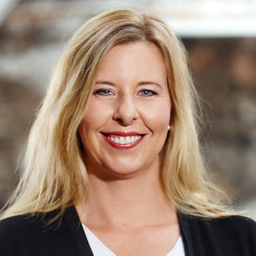A Tighter Rein on Programmatic: German Code of Conduct
by Sonja Kroll on 1st Dec 2016 in News

From bringing up the rear, to blazing the trail: the programmatic landscape in Germany has taken its time to catch up with international markets. As the German programmatic market consolidates, the industry has come together to commit to minimum standards that will ensure the growth and development of programmatic. The German 'Code of Conduct Programmatic Advertising' is born. ExchangeWire speak with some of the signatories.
In a market where publishers have traditionally been strong and private deals have been coveted, it has taken years to get out of the teething phase and establish the automated selling of advertising. But with programmatic growing by more than 50% in the first half of 2016 year-on-year, the market is now ready for some pioneering work. The industry body BVDW takes on thought leadership and standardisation of the programmatic market in Germany that is fighting problems such as uncontrolled growth, lack of transparency, dubious data quality, and a general terminological inconsistency.

Daniel Rieber, VP Marketing, adsquare
The underlying premise of the initiative: for many participants in the market, programmatic advertising is still uncharted territory. Regulation is needed, not only to create trust in programmatic advertising among potential clients, but to support the active participants in digital media sales to develop common ground from which to build high-quality and secure solutions – and to accelerate the growth of programmatic trading within the market. A view that is shared by all of the signatories of the CoC. Daniel Rieber, VP Marketing, adsquare and vice chair of the BVDW focus group on mobile, helped draft the document, focusing on data platforms. "The initiative is crucial in order to preempt the hesitations of the industry and to establish a sustainable economy that can compete on a global level."

Frederike Voss, Co-founder & CEO, orbyd
"In a special market, such as Germany, consistent rules are important in order to provide a solid framework and guidance for stakeholders to interact in”, explains Frederike Voss, CEO, orbyd, who has also been actively involved in the initiative for the last two years. "The Code of Conduct underlines the need in the German market to align among participants, such as technology providers, publishers, saleshouses, agencies, and advertisers, when it comes to successfully implementing programmatic advertising strategies." This does not only apply to the providers of ad tech and martech: "First of all, the Code of Conduct is going to benefit our clients."

Holger Mews, SVP Programmatic Trading & Business Development Europe Adform
Holger Mews, SVP programmatic trading & business development Europe Adform, points out: "More than 40 BVDW member organisations have signed the voluntary self-commitment, which provides defined criteria for demand-side platforms (DSP), sell-side platforms (SSP) and data providers – this can only be good news for the wider ecosystem."
So, what is in the CoC? Crucially, the document attempts to create a common ground by supplying standard definitions for vague industry terms. This is to help clients as much as the competing and/or cooperating companies, since meaningful quality metrics, such as viewability, for instance, hugely depend on the definition of when an ad actually counts as 'seen', and is a prerequisite for data transparency. The CoC asks the signatories to provide information on their data sources, data collection methodology, and policies. In the end, this should also benefit the fight against ad fraud, another central part of the document, which demands suppliers to put safety measures against ad fraud in place and to provide tools to check that fraudulent ads are excluded from the traffic.

Oliver Hülse, MD DACH, Rocket Fuel
According to Oliver Hülse, GM DACH, Rocket Fuel, the BVDW’s push for unified regulation was long overdue: "It’s obvious that the initiative is not only justified, but also significant because the demand from companies willing to sign the Code of Conduct, is huge. However, not all companies fulfil the technical prerequisites."

Björn Radau, Director Marketing & Communications DACH, Teads.tv
Among those who did, is Teads.tv. What does the video advertising provider expect from the initiative? "With the Code of Conduct, the industry is signalling its willingness to guarantee security, transparency and quality", says Björn Radau, director marketing & communications DACH, Teads.tv. "We are hoping for more momentum for the programmatic market and for the participation of agencies and advertisers who have been sceptical until now. In addition, we are also interested in the quality of the environment in which ads are displayed. We don’t believe that automated ad trading is only counted in impressions. Environment, viewability, and view-through rate are programmatic metrics of the success of a video campaign."
A code of conduct is only ever as good as the companies which have subscribed to it. So, how are the well-intended rules of programmatic etiquette enforced if the CoC is a voluntary obligation? Julian Simons, deputy chairman of the focus group Fokusgruppe Programmatic Advertising tells ExchangeWire that, even though voluntary, the Code of Conduct is binding for signatories. "Those who do not comply can expect penalties."

Julian Simons, Deputy Chair Focus Group Programmatic, BVDW
Such as retracting the seal of approval that comes with signing the CoC, or are there any other sanctions? "Depending on the severity of the infringements, the offenders are not only reprimanded but other sanctions (public announcement of the reprimand, suspension, exclusion) can be imposed – in relation to the severity of the infringement and the reaction of the companies, these may even be imposed cumulatively or in phases", explains Simons. The penalties become effective if the reprimanded company has failed to take remedial action within a week. The sanctions are enforced by the companies themselves – and monitored by a newly established Board of Complaint. "And most companies should be interested in avoiding public communications of their faux pas", Simons concludes.

Uli Hegge, VP Strategic Market Development DACH, AppNexus
AppNexus’s VP strategic market development, Uli Hegge, who has also been elected to the board of complaint, believes that the German CoC has established the BVDW as an international pioneer. "This will not only benefit the market with more security, but also lead to a higher share [of programmatic] in marketing in general." Self-commitment to a Code of Conduct may even have tangible rewards for signatories, like his own company: "Of course, AppNexus would be delighted if higher quality levels will result in more sales." A sentiment shared by Rocket Fuel's Hülse: "The CoC certainly represents a useful tool for building trust within the advertising market – which will, ultimately, benefit our business."
It will be interesting to see whether the Code of Conduct has the desired effects. The industry-shaping success of the document will not only depend on the compliance of the signatories and the scope and effectiveness of sanctions in case of infringements, but also on attracting more companies to comply with the self-regulation. So far, the industry giants – Facebook, Google – are notable by their absence only.
Ad FraudDACHDataEMEAProgrammaticRegulationTransparency








Follow ExchangeWire